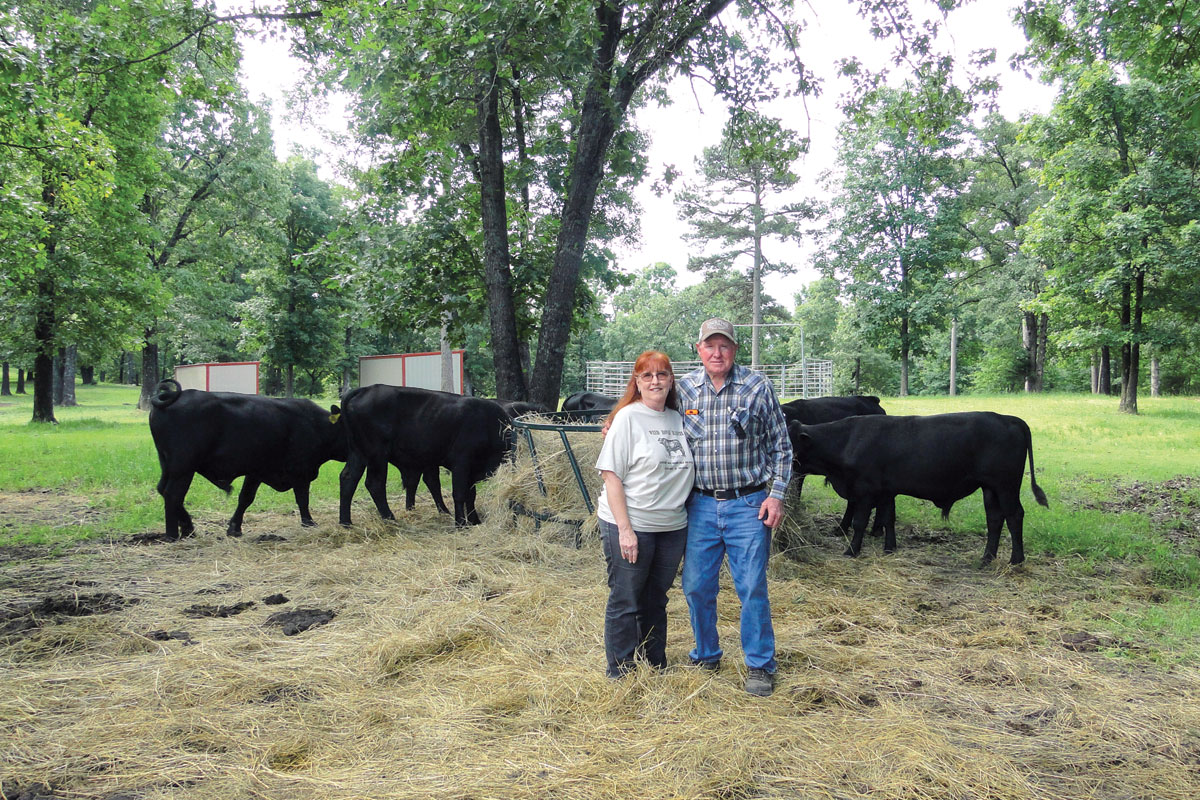
Bob Tedder was able to build his farming operation through his equipment business
Bob Tedder met his future wife Valine when he was selling equipment to rice farmers in Northeast Arkansas. She was a town girl but a wannabe rancher who loved horses.
Bob had an extra 13 acres around his equipment/home site in Mountain Home, Ark., on which they maintained a 25-head commercial herd.
His son Bobby, often called Hoot, had been working for Kellogs for a couple of years when he approached his father looking for a job that better suited him. Ten years later, Hoot bought his dad out of the original location while Bob had opened a second used equipment dealership called Tedder Equipment in Mountain Home in 1991.
“I’ve been in the implement business since 18 and started as a janitor. The key to any business is to hire the best people and pay well. If you don’t take care of your employees, they won’t take care of you,” Bob said.
The Mountain Home equipment business has two full-time mechanics, full-time parts manager, and two part-time helpers. Bob handles the equipment sales, and Valine handles all office and bookkeeping duties. Over the years Bob and Valine have built up strong loyalty among customers and business people alike.
Bob knows where each piece of equipment comes from, and each is ready to go when people enter whether they’re looking for tractors, backhoes, or bulldozers.
At the same time, Valine wanted to start a horse ranch named Rose Wind Ranch because she had loved the name as a child. The couple began by renting land but found that unworkable so in 1997 they purchased 40 acres outside of Mountain Home. At one time they had 28 registered Tennessee Walker, American Saddlebred and Morgan horses. When the horse market dropped severely, the couple transitioned to commercial cattle and later to registered Brangus and Ultra-Black because Bob had a market for them and their grandchildren showed registered Brangus.
“Not all of our bulls have much ear or sheath, but the 3/8 Brahman provides longevity, disease resistance, docility calving ease, polled and overall hardiness,” Bob said.
The couple still has four horses, but have expanded to 300 acres within a 10-mile radius of their business with 50 Brangus momma cows bred by one main Brangus sire, and a registered Angus bull to breed heifers which will produce the Ultra-Blacks, making a total herd size of 125.
Bob believes natural breeding works well because the use of AI or ET still required a cleanup bull. The bulls run with the mommas all year so the Tedder’s have a supply of breeding bulls of different ages to meet customer demand. They sell breeding bulls by private treaty, raise their own replacement heifers and bring those about to give birth during the winter into the horse barn. Replacement heifers are bred at 15 months so they are more mature, which Bob believes increases longevity and birthing ease.
Young bulls receive Bermuda hay and lick tubs with medicated salt. They only receive grain if the weather becomes severe. After the calves are weaned at 6 months, they are given grain in order to learn to come to the sack and to stay maintained because of the stress of being without momma. Temperament is important, and when one went through a fence he got the nickname T-bone because he was gone for two or three weeks and was afraid to become someone’s dinner. All animals are worked twice a year, including using an injectable wormer in the fall and pour on in the spring.
“I rarely need to call a vet because I have a good farmhand named Butch McDonald whose son is one of my mechanics,” Bob explained.
The Tedder pastures are Bermuda and fescue with natural clover. All hay is stored in the barns and net wrapped to control roll and minimize weather impact. Even though the Tedders purchase all their hay due to time constraints, the land is fertilized with locally purchased turkey litter in the fall when it is “put to bed” to get in shape for spring. The pastures are well-established so weeds are sprayed only if needed with spot spraying for pigweed or thistle or whatever weed is predominant that year.
The Tedders have several suggestions for someone considering getting into the cattle business. The first is to start out small because the temptation to overbuy is so strong and to buy from friends with good cattle rather than from an auction. They also suggest having about 5 acres per cow and buying hay until the business has settled. Finally, they suggest belonging to the local cattle association and talking to other successful producers of cattle and hay for suggestions, solutions and tips.
“You never quit learning. We had a cow with what looked like a badly swollen closed eye a couple of weeks ago and an old guy told us to throw salt in its eye because the problem was probably a fescue seed. We did just that, her eyes teared and the problem disappeared,” Valine said






